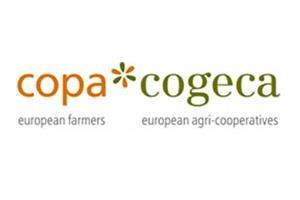
Commenting on the release of the document Pekka Pesonen, Copa-Cogeca Secretary General said “European farmers, forest owners and their cooperatives are the first to feel the impact of climate change. There are no climate change deniers in the European farming community. We are committed to the implementation of the Paris Agreement and its goals, unachievable without the full involvement of agriculture and forestry sectors. No other sectors in Europe will be able to remove emissions from the atmosphere naturally. However, to deliver our full potential we need both consistent policies and general public support.”
The EU farming model, based on diversified, local and family farm structures, is among the most efficient farming systems in the world. This has allowed EU agriculture to increase its overall productivity by 25% since 1990 while reducing its GHG emissions by 20% over the same time period, effectively decoupling climate impact from production growth. Nevertheless, the EU farming organisations also acknowledge the fact that today and, in the future, more needs to be done to enhance adaption and foster mitigation. Under the current policy framework, it is estimated that further reductions in agricultural emissions will be limited – between 0.5% and 3% by 2030.
Solutions exist as well as examples of best practices, as shown on a dedicated web platform www.farmersclimact.eu launched by Copa and Cogeca together with its position paper, encouraging farmers and cooperatives from across Europe to communicate more on their daily ClimActs.
According to Copa-Cogeca, the only way to achieve further reductions in agricultural emissions without putting downward pressure on production, and thereby causing carbon leakage, is to incentivise the take-up of mitigation practices. Any efforts to reduce EU agricultural emissions other than providing incentives and extension services would result in a contraction of the EU agricultural sector and a loss of its competitive position. The EU Farming organisations support the idea of carbon credit schemes through the development of privately funded initiatives.
Regarding trade, Copa and Cogeca reminded that any weakening of the EU’s current border protection for agricultural products could dramatically undermine efforts to reduce emissions, particularly in the livestock sector, and could well prevent a net global reduction in emissions. Due to the urgent nature of climate action, a chapter on the application of climate measures must be included in all free trade agreements.






No comments yet